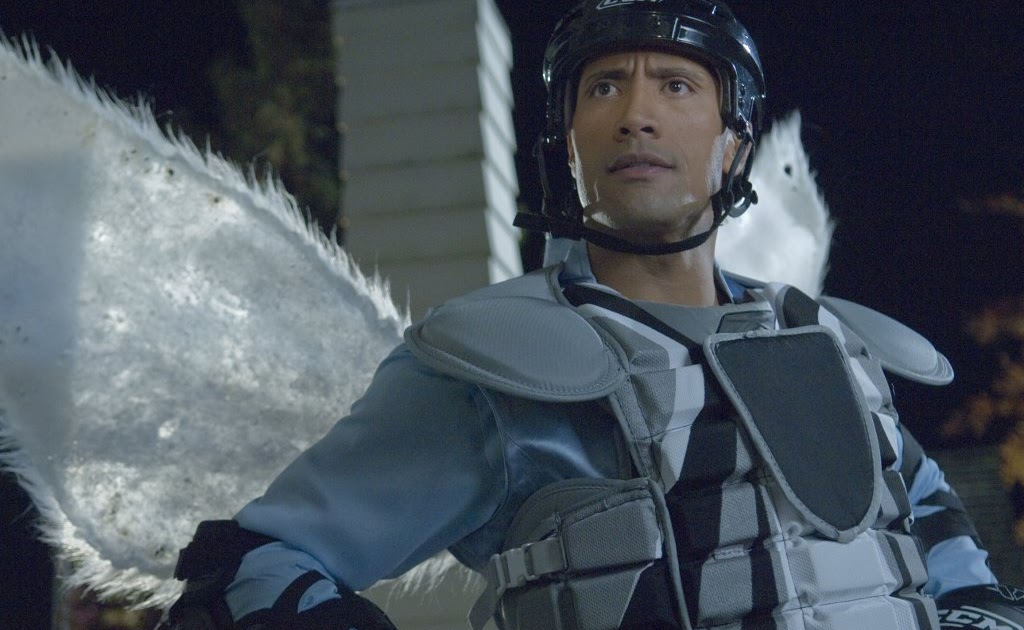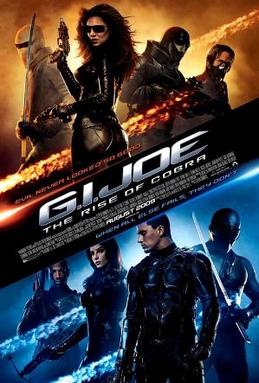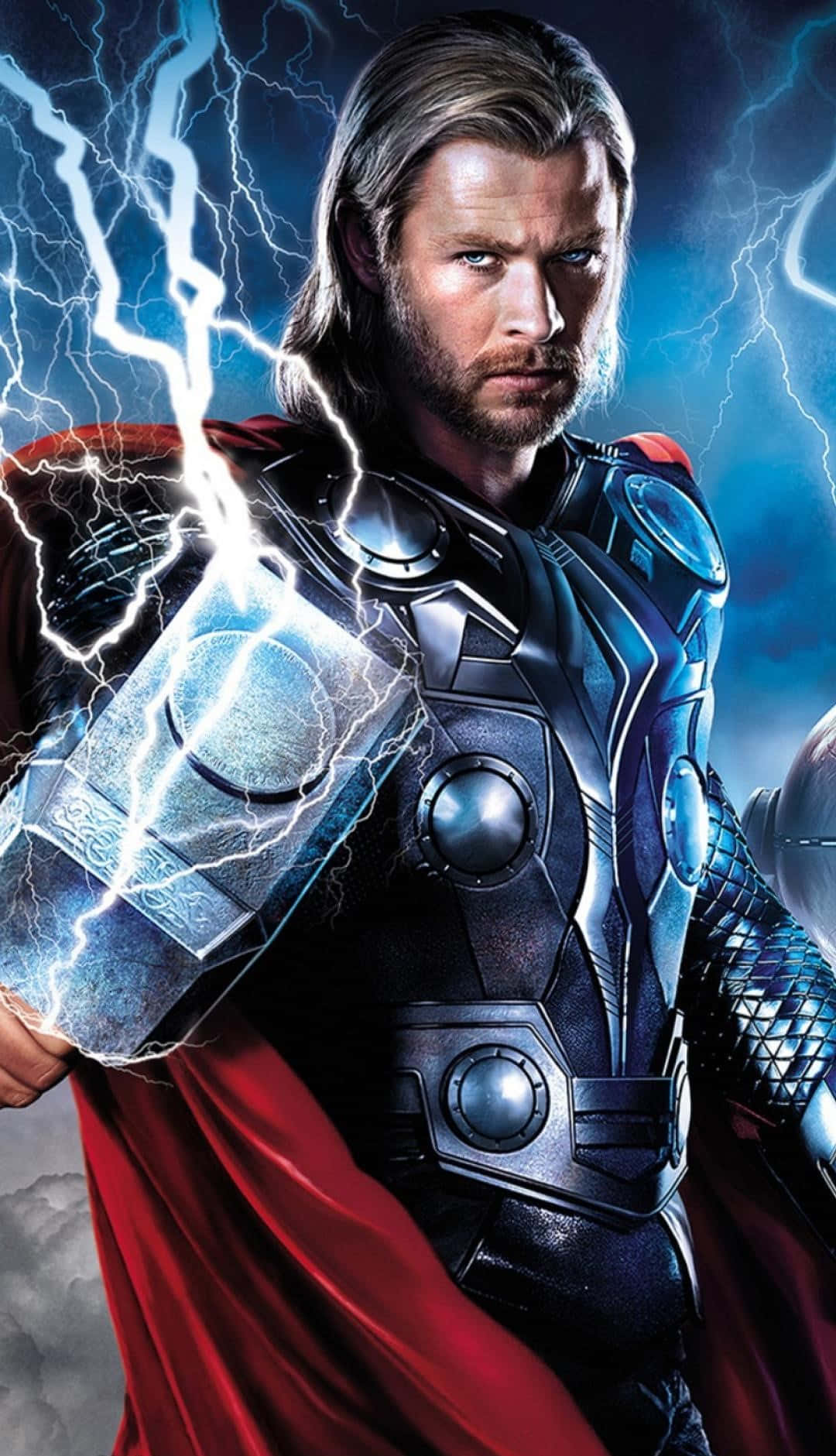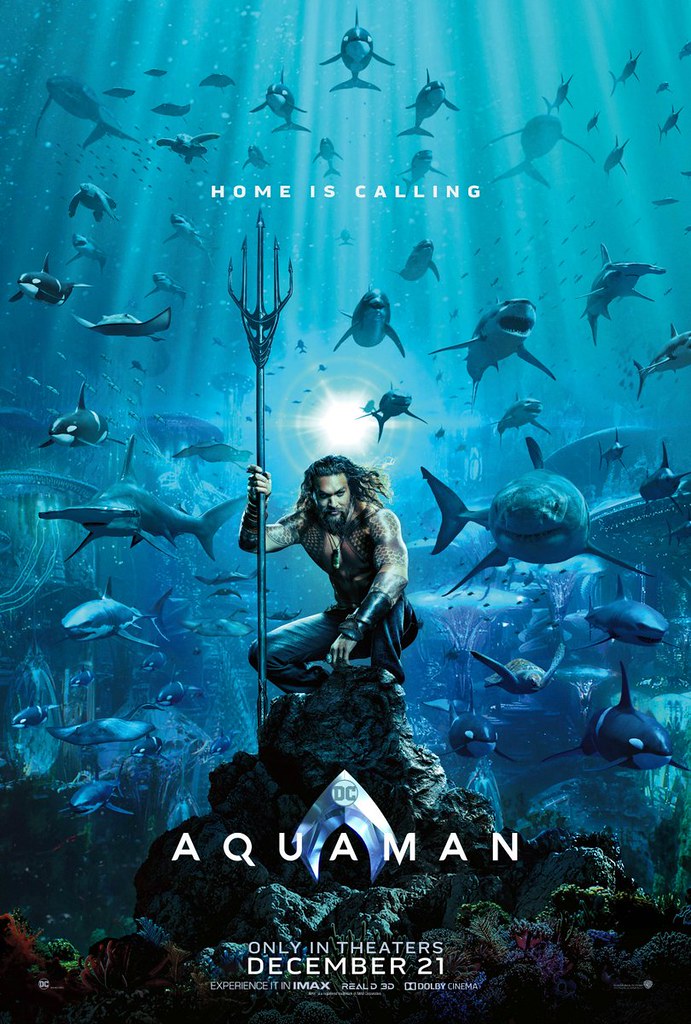
Alright, movie buffs, let’s get real for a second. We’ve all been there: scrolling through a streaming service, stumbling upon a title, and thinking, “Wait, I *know* I watched that movie. But… what actually *happened* in it? And who was even the main character?” It’s a bizarre and slightly unsettling feeling, like your brain has decided to perform a selective memory wipe on specific cinematic experiences. Sometimes a film just doesn’t stick, melting into the vast, hazy landscape of our mental movie archives.
It’s a phenomenon Redditor Kelvin_Inman tapped into when they asked r/AskReddit, “What movie was so forgettable that you know you watched it but can’t recall anything about the events of the movie?” The responses were a goldmine of forgotten flicks, proving that “forgettable” isn’t always a synonym for “bad,” but rather for a certain kind of nondescript blandness that leaves no discernible footprint. And honestly, if a movie itself vanishes from our collective consciousness, then it’s a pretty safe bet that the folks leading the charge in those films didn’t exactly leave a lasting impression either. The lead character, the one person whose journey we’re supposed to be invested in, becomes an enigma, a blurred face in a sea of cinematic white noise.
But fear not, because we’re here to shine a spotlight on those shadowy figures, to drag them momentarily back into the harsh glare of remembrance before they inevitably fade away again. We’re diving deep into films where the protagonist, despite being central to the story, somehow managed to be instantly, almost magically, forgettable. Get ready for a wild ride down the lane of forgotten heroes and heroines, because you might just realize you’ve forgotten these too!

1. **Smurfs (2025)**Okay, let’s kick things off with a prime example that hasn’t even fully graced our memories yet, but already comes with a built-in forgettability clause for its main character. The recent review of *Smurfs* (2025) explicitly calls out its “forgettable male lead,” a character so nondescript he’s simply known as “No Name.” Talk about hitting the nail on the head! This reboot, from Paramount Animation, was supposed to be a fresh take on the beloved blue creatures, but it seems to have stumbled right out of the gate when it comes to character impact.
The review points out a particularly frustrating aspect: while the marketing loudly proclaimed “Rihanna is Smurfette” – giving the iconic female Smurf top billing – the on-screen reality was quite different. Smurfette’s “sole function is to provide emotional support to a directionless boy, No Name, who somehow winds up being the hero.” This setup almost guarantees that No Name will be overshadowed. He’s not driving the plot with inherent charisma or a compelling internal struggle; he’s merely reacting, and often, being propped up by a character who was far more prominently featured in the promotion. It’s a classic case of a protagonist whose purpose is primarily functional, rather than genuinely engaging.
It’s truly a missed opportunity when a film, especially an animated one for families, relies on such a bland central figure. The film’s “bursting creativity” in animation style, from “bubble-shaped, Pixar-like renderings in Smurf Village to live-action hustle and bustle when our smurf heroes get to Paris,” and dabbling in “claymation, anime, 8-bit sprites, and more,” only highlights the narrative vacuum at its core. All that visual flair can’t compensate for a hero who is, by design, “directionless” and needs others to define his journey. When the hero feels like a placeholder, the audience is left with little to cling to once the credits roll.
The consequence is clear: the film “becomes an empty collection of clips and story beats—a TikTok feed with some catchy moments… but most of it blurring into white noise.” If the entire film blends into white noise, imagine the fate of a character already described as a “forgettable male lead.” He doesn’t just fade into the background; he was practically invisible from the start, a testament to how poor character conception can doom a protagonist to oblivion, even in a movie bursting with animation experimentation. It’s a stark reminder that even the most visually inventive films need a compelling heart, and often, that heart resides in its lead.

2. **Elizabethtown**Ah, *Elizabethtown*. The movie so forgettable that, as the context so perfectly puts it, “No one remembers what happens in ‘Elizabethtown’ because no one remembers ‘Elizabethtown’.” Now, if an entire film and its events are wiped from the collective memory banks, it stands to reason that the person at the very center of that forgotten narrative would similarly vanish without a trace. This isn’t just about a character being bland; it’s about a character being intrinsically linked to a project that simply failed to make any kind of impression whatsoever.
Imagine trying to recall the protagonist’s name, their major conflict, or even a single defining personality trait. For many, that’s an exercise in futility when it comes to *Elizabethtown*. The movie itself acts like one of those “Men in Black” memory-eraser devices, only it’s targeting its own content. The lead character, meant to anchor the story and provide a point of emotional connection, instead becomes a casualty of the film’s overall nondescript nature. They might have gone on an emotional journey, faced a crisis, or found love, but if the audience can’t recall any of those significant events, then the person experiencing them becomes just as nebulous.
It’s a curious phenomenon where the very act of trying to describe the film only serves to highlight its elusive qualities. The context mentions how “sometimes, things are so incredibly nondescript that you actually can’t describe them.” This applies perfectly to the lead of *Elizabethtown*. Was he charming? Melancholy? Quirky? The answers, for most, are likely a shrug. Their struggle, their triumph, their romance – all these vital elements that make a lead character resonate with an audience simply don’t register, because the vessel for these experiences, the film itself, is already floating in the cinematic ether, barely a whisper of a memory.
This particular brand of forgettability is perhaps the most profound. It’s not that the lead was actively disliked or poorly acted; it’s that they simply didn’t exist in a meaningful way beyond the runtime of the film. They didn’t leave a lingering thought, a quotable line, or even a sense of irritation. They were simply *there*, occupying space within a story that, for all intents and purposes, left no mental trace. And in the vast sea of cinema, to be utterly forgotten is perhaps a more damning fate than to be remembered, even if only for infamy.
Read more about: The Full List of Big Lots Stores Staying Open Under New Ownership

3. **Sky Captain and the World of Tomorrow**Stepping into the world of dazzling visuals and retro-futuristic charm, *Sky Captain and the World of Tomorrow* promised an adventure. Yet, despite its unique aesthetic and innovative use of green screen technology, it landed squarely on the list of “Most Forgettable Movies Ever.” And when a film is remembered more for its stylistic choices than its story or, crucially, its characters, you know its lead is probably going to be in trouble when it comes to leaving a lasting mark.
Think about it: when you recall *Sky Captain*, do you immediately picture the intrepid hero, Joe Sullivan (the titular Sky Captain), or do you recall the sepia-toned cityscapes, the giant robots, and the art deco zeppelins? For many, it’s likely the latter. The film was a groundbreaking experiment in visual storytelling, creating an entire world from scratch, and sometimes, such ambitious world-building can inadvertently overshadow the very characters meant to inhabit it. The protagonist, despite being central to the action, can become just another cog in the magnificent machinery of the film’s design, rather than a memorable personality driving the narrative.
In genres like sci-fi and adventure, there’s often a fine line between creating an iconic hero and one who simply serves as a tour guide through an amazing landscape. If the spectacle is the true star, then the human elements, including the lead character’s emotional arc or unique quirks, can get lost in the shuffle. The audience might be wowed by the special effects, the daring escapes, and the imaginative technology, but once the lights come up, the person who experienced it all often becomes as generic as a stock image hero, easily replaced by any other brave pilot or resourceful adventurer.
So, while *Sky Captain and the World of Tomorrow* was visually distinct, its lead character might have suffered from the film’s own strengths. He was there, he flew the planes, he fought the robots, but did he *feel* like a person who truly resonated, or merely a necessary component for the stunning visuals to unfold? The answer, for many, is that he likely blurred into the background of his own spectacular world, a testament to how even in the most imaginative settings, a forgettable protagonist can still emerge if the character development doesn’t match the grandeur of the visuals.
Read more about: Beyond the Red Carpet: 14 Celebrities Who Braved the Battlefield in Real Life

4. **Soul Survivors**From high-flying sci-fi to the chilling (or perhaps not-so-chilling) depths of the horror genre, we find *Soul Survivors* making an appearance on our list of movies that just didn’t stick. Horror films often rely on strong, relatable protagonists whose fear and resilience drive the suspense. However, when a horror movie itself is deemed “forgettable,” it usually means the scares didn’t land, the plot twists were predictable, and, yes, the characters, including the lead, failed to evoke a strong emotional response beyond fleeting moments of terror.
The challenge for a lead in a forgettable horror film is particularly acute. Unlike other genres where a character might be bland but the plot still captivates, in horror, the audience’s connection to the protagonist is paramount. We need to feel their fear, root for their survival, and understand their motivations. If the film doesn’t provide enough depth or unique personality for its lead, they can easily blend into the long line of ‘scream queens’ or ‘doomed heroes’ who populate countless horror flicks. They become a vehicle for the scares, rather than a compelling individual navigating a terrifying ordeal.
Without specific details about *Soul Survivors* beyond its placement on the “forgettable” list, we can infer that its lead likely suffered from this very problem. Perhaps they were a generic college student, dealing with supernatural forces, whose personal struggle wasn’t distinct enough to stand out. Or maybe the plot was so convoluted, or so unoriginal, that the protagonist’s journey felt like a rehash of a hundred other horror tropes, leading to an immediate mental discard. The film’s overall failure to leave a mark inevitably means its central figure, the one we’re meant to follow into the darkness, also failed to imprint themselves on our memories.
Ultimately, a forgettable horror lead is a symptom of a forgettable horror film. If the story and scares don’t linger, neither will the person experiencing them. They become a ghost in their own narrative, a character whose trials and tribulations evaporate once the end credits roll, leaving behind only the vague sense that *something* happened, to *someone*, but who, exactly, and why, remains stubbornly out of reach. It’s a cruel fate for any protagonist, but a common one when the film itself doesn’t offer enough substance to etch itself into the viewer’s mind.
Read more about: The Ultimate Guide to Affordable Classic Cars: 14 Reliable Rides That Won’t Break the Bank (and Are Surprisingly Easy to Own!)

5. **Tenet**Christopher Nolan is known for his mind-bending, intricate narratives, but even a director of his caliber can produce a film whose protagonist, despite being central to a hugely ambitious plot, becomes strangely forgettable. *Tenet* lands on our list of forgettable movies, and while its temporal gymnastics and complex concepts certainly generated buzz, the lead character himself often gets lost in the intellectual puzzle the film presents. When the plot is the star, the people enacting it can sometimes take a backseat in our memories.
The Protagonist, as he’s literally named, is an agent tasked with preventing World War III, operating within a convoluted world of “inverted” time. While his mission is grand and the stakes are impossibly high, his personal journey and character traits are often secondary to the mechanics of the plot. We’re so busy trying to understand how the “inversion” works, how the temporal pincer movements are unfolding, and what the ultimate implications of the time-bending are, that our emotional connection to the lead character can become tenuous. He serves the plot, rather than the plot serving his development, which can lead to a less memorable individual.
It’s a fascinating paradox: a film that demands immense intellectual engagement from its audience, yet delivers a lead character who struggles to make an emotional imprint. The sheer scale and ambition of *Tenet*’s narrative, coupled with its often fast-paced exposition and dense lore, means that character nuances can easily be overlooked. The Protagonist is competent, determined, and central to the events, but does he possess a unique voice, a compelling backstory, or a distinctive personality that sets him apart from other action heroes? For many, the answer leans towards the negative; he’s more a function of the plot than a fully realized person.
So, while *Tenet* might leave you pondering the nature of time and destiny, it’s far less likely to leave you musing about the Protagonist’s innermost thoughts or his personal struggles. He’s a powerful engine driving a complex machine, but the machine itself often takes precedence over the driver. His forgettability isn’t a flaw in his performance, but rather a consequence of a film that prioritizes intricate world-building and high-concept action over deep character exploration, leaving its central figure as an impressive but ultimately nebulous presence in our cinematic recollections.
Alright, buckle up, because we’re not done dredging the depths of our cinematic subconscious! If the first five entries had you scratching your head, wondering if you actually *did* forget those movies and their main characters, then get ready for round two. We’re continuing our expedition through the hazy landscape of cinematic memory, proving once and for all that sometimes, a movie just doesn’t stick, and neither does the person leading the charge. Let’s shine a light on five more protagonists who, despite their best efforts, ended up as blurred faces in the white noise of film history.
Read more about: 11 Compelling Reasons Why Classic Cars Unquestionably Outperform Modern Vehicles: An Expert’s Deep Dive into Timeless Automotive Superiority

6. **Tooth Fairy**Now, here’s a title that you might faintly recall, perhaps from a quick scroll or a casual channel surf, but what actually happened in *Tooth Fairy*? And more importantly, who was the lead character, really? This film made its way onto the infamous list of “Most Forgettable Movies Ever,” which tells you everything you need to know about its staying power. When a movie, especially one with a premise as quirky as this, struggles to leave a mental footprint, its central figure is often the first casualty.
The very concept of a lead character taking on such an unusual role might seem like a recipe for memorability. However, if the film around them is deemed “nondescript,” then even the most fantastical setup can’t save its protagonist from fading into oblivion. They might have delivered lines, executed action sequences, or undergone a significant transformation, but if the overall experience of the movie is instantly erasable, then so is their specific journey within it.
It’s a curious cinematic fate, where a character meant to drive the narrative becomes indistinguishable from the background noise. Their quirks, their struggles, their moments of triumph – all blur into an empty collection of story beats that simply fail to resonate. Much like the general sentiment that “sometimes, things are so incredibly nondescript that you actually can’t describe them,” the lead of *Tooth Fairy* likely exemplifies this, leaving audiences with little more than a vague sense that they once watched something involving a mythical dental figure.
Read more about: Seriously, What Were They Thinking?! The 6 Wildest Internet Challenges People Actually Tried That Prove Humanity Hit TikTok Bottom

7. **G.I. Joe: The Rise of Cobra**When we talk about action blockbusters, we usually expect heroes who are larger than life, capable of leaving an indelible mark. Yet, *G.I. Joe: The Rise of Cobra* finds itself on the list of films whose events, and by extension, whose lead characters, are stubbornly difficult to recall. This isn’t just a slight oversight; it points to a deeper issue of a film that, despite its explosions and ambitious scope, simply didn’t stick in the collective consciousness.
In movies packed with spectacle and high-stakes action, the human element can sometimes get lost. The lead character, intended to be our anchor in the chaos, might become just another piece of the magnificent machinery of the film’s design, rather than a truly distinctive personality. We might remember the cool gadgets, the elaborate set pieces, or the special effects, but the person at the heart of it all becomes generic, easily replaced by any other brave operative or resourceful adventurer.
This type of forgettability is particularly challenging for a franchise starter. A lead character in a film like *G.I. Joe* is supposed to establish a presence, to make us invested in future installments. But if their initial outing becomes a blur, then the foundation for a lasting impression crumbles. They become functional, a necessary component for the plot to unfold, but without the unique voice or compelling emotional arc that makes them genuinely memorable once the credits roll.
So, while *G.I. Joe: The Rise of Cobra* was undoubtedly an attempt to create an action-packed world, its lead character might have suffered from the film’s own inability to carve out a distinct identity. He was there, he fought the villains, but did he *feel* like a person who truly resonated, or merely a placeholder for the next cool explosion? For many, the answer leans towards the latter, leaving him as an impressive but ultimately nebulous presence in our cinematic recollections.
Read more about: How the Transformers: Rise of the Beasts Ending Sets Up a Massive G.I. Joe Crossover

8. **Thor: The Dark City**Even the mightiest of heroes from sprawling cinematic universes aren’t immune to the curse of forgettability, as evidenced by *Thor: The Dark City* appearing on our infamous list. For a character as iconic as Thor, to have an entire film where his particular journey or defining moments fade from memory is a striking testament to how a film’s overall impact directly affects its lead’s lasting impression. This isn’t about the character’s general fame; it’s about *this specific cinematic outing*.
When a film within a larger, ongoing saga fails to deliver a truly unique and compelling narrative for its protagonist, that character’s specific arc in that movie can easily blend into the background. The lead might be battling cosmic threats or facing personal demons, but if the plot feels like a rehash or simply lacks the emotional depth to stand out, then their contributions, no matter how heroic, become indistinct. They become a vehicle for the universe’s expansion, rather than a central figure whose struggles genuinely grip the audience.
It’s a peculiar situation where an established, beloved character can still feel forgettable within a particular story. The lead’s actions and decisions in *Thor: The Dark City* might not have resonated strongly enough, or the challenges they faced weren’t distinct enough from their other adventures to create a lasting imprint. Consequently, the person at the center of this narrative becomes an enigma, a blurred face in a sea of cinematic white noise, despite having a recognizable name and a powerful hammer.
Ultimately, this entry highlights how even established characters need compelling storytelling in *every* installment to remain unforgettable. If the movie itself becomes an “empty collection of clips and story beats—a TikTok feed with some catchy moments… but most of it blurring into white noise,” then the heroic figure leading it will surely share the same fate, their specific journey in that particular film evaporating from our minds.
Read more about: Ranking the Real Heavyweights: Your Ultimate Guide to the 9 Strongest Movie Superheroes of All Time!

9. **Iron Man 2**Another surprising entry on our list of forgettable movies is *Iron Man 2*. Wait, *Iron Man*? The character who kicked off a cinematic universe and redefined superhero cinema? Yes, even an icon like Tony Stark, played by a charismatic lead, can headline a film whose specific narrative and character moments somehow manage to elude our collective memory. This particular film’s presence on the list underscores that even an already beloved character can be rendered forgettable if the movie itself doesn’t quite hit the mark.
For a character with such a strong personality and established backstory, the forgettability of *Iron Man 2* suggests that the film’s plot might have been more functional than foundational for its lead. Perhaps it served as a bridge to future installments, or introduced too many elements without giving Tony Stark a truly compelling, self-contained journey within *this specific story*. When a film focuses more on setting up a larger universe than on crafting a distinct emotional arc for its central figure, the protagonist’s actions can feel less impactful and, therefore, less memorable.
It’s a testament to the power of overall film quality in shaping character remembrance. Tony Stark is undeniably memorable as a character, but his specific tribulations, witty one-liners, or heroic acts *within Iron Man 2* seem to have blended into the general cinematic ether. His brilliance, his struggles with the arc reactor, his relationships – all elements that could have been distinctive – become indistinct when the film itself fails to etch itself into the viewer’s mind as a standalone experience.
So, while we all know and love Iron Man, his specific outing in *Iron Man 2* has, for many, joined the ranks of films where the lead, despite their inherent appeal, is lost in the overall nondescriptness of the cinematic experience. He might have been central, he might have been witty, but the particular flavor of his journey in this film just didn’t leave a lingering taste, fading into the background of a much larger, more memorable saga.
Read more about: Jonah Hill’s Epic Hollywood Evolution: From Comedy King to Multi-Hyphenate Maverick, a Deep Dive into His Dramatic Transformation

10. **Aquaman**And finally, capping off our journey into cinematic oblivion, we have *Aquaman*. This is another superhero spectacle that, despite its ambitious visuals and grand underwater worlds, has somehow found itself swimming in the murky waters of forgettability. Just like *Sky Captain and the World of Tomorrow*, *Aquaman*’s presence on this list suggests a scenario where breathtaking spectacle might have inadvertently overshadowed the very character meant to lead us through it.
In films that rely heavily on creating immersive, fantastical environments, there’s always a risk that the setting itself becomes the true star. The elaborate CGI, the vibrant underwater kingdoms, the epic battles – these elements can captivate, but if the lead character’s personality, motivations, and emotional journey don’t stand out against such a dazzling backdrop, they can easily become secondary. They might be physically present and central to the action, but emotionally and narratively, they simply don’t make a lasting splash.
The protagonist of *Aquaman*, despite controlling the vast oceans, appears to have struggled to command a lasting presence in the audience’s memory for his specific film. His conflicts, his quest, his very identity, can get lost in the sheer scale of the world-building, making him feel more like a vehicle for showcasing the visual effects than a distinct, unforgettable individual whose journey truly resonated once the credits rolled. When the film “blurs into white noise,” its hero, no matter how powerful, inevitably blurs with it.
It’s a fascinating paradox: a film designed to be grand and memorable, yet its central figure has, for many, become an enigma. The hero who bridges two worlds ultimately couldn’t bridge the gap to sustained audience recall, leaving his specific adventure as a vague, shimmering echo in the vast cinematic ocean. This is the ultimate fate for a forgettable lead: to be part of something big, but to remain indistinct within it, a testament to how character depth is crucial even when surrounded by the most spectacular of visual feasts.
Read more about: Fast X, Wonka & More: The 16 Biggest Blockbusters of 2023. How Many Did You See?
So there you have it, folks! Ten films where the lead character, for one reason or another, just didn’t stick. It’s a wild ride through the landscape of cinematic memory, proving that sometimes, even in the most ambitious or beloved projects, a protagonist can simply fade into the background. It’s not always about a bad performance or a flawed character, but often about a film that, for all its efforts, simply didn’t resonate enough to leave a lasting impression. The next time you’re racking your brain trying to remember *that one movie* you totally watched, or the face of its main character, don’t worry – you’re definitely not alone. It’s a reminder that even in the dazzling world of cinema, some stories, and their heroes, are destined to become delightful, albeit hazy, memories. Happy forgetting!



